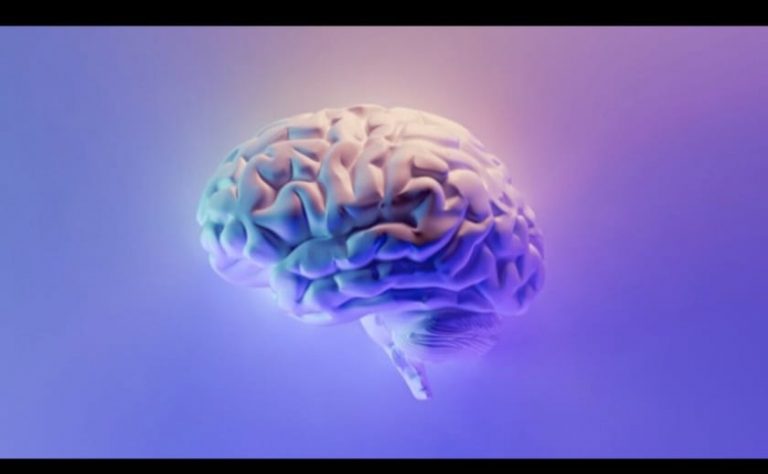Introduction: Why Tolerance Matters in Today’s World
In an increasingly interconnected world, the importance of tolerance cannot be overstated. As societies become more diverse, the ability to accept and respect differing opinions, cultures, and lifestyles is essential. Tolerance fosters peace, promotes personal growth, builds strong relationships, and ensures inclusivity in communities. However, despite its critical role, the practice of tolerance faces many challenges today. This blog explores the significance of tolerance in life, the obstacles it faces, and how we can cultivate it in our daily lives for a more harmonious and inclusive society.
1. Fostering Peace and Understanding
Intolerance often leads to division, conflict, and misunderstanding. When individuals or groups are unwilling to accept others’ beliefs or practices, it results in hostility, discrimination, and sometimes violence. Tolerance, on the other hand, acts as the antidote to these destructive forces. It promotes communication, mutual respect, and empathy, enabling people to live together harmoniously despite differences.
In peaceful societies, tolerance is the cornerstone of diplomacy and cooperation. By accepting and respecting the views and practices of others, conflicts are less likely to escalate into violent confrontations. A tolerant attitude encourages dialogue, which can defuse tension and lead to peaceful solutions. This is why tolerance is often seen as a fundamental building block of sustainable peace both in the local community and on the global stage.
2. Enhancing Personal Growth
Exposure to different cultures, ideas, and perspectives broadens one’s worldview and enhances personal development. Tolerance is not only about accepting differences in others but also about challenging our own biases and prejudices. When we embrace diversity, we open ourselves up to new experiences that can foster intellectual and emotional growth.
For example, traveling to new countries, interacting with people from different cultural backgrounds, and learning about different philosophies can help break down the walls of ignorance. This process pushes individuals to question their assumptions, learn new things, and grow in empathy. Tolerance, therefore, is integral to personal growth, encouraging us to evolve into more open-minded, self-aware, and compassionate individuals.
3. Building Strong Relationships
Whether in families, workplaces, or communities, tolerance is vital for creating and maintaining strong, healthy relationships. No relationship, personal or professional, is free from differences—whether it’s differences in opinion, background, or values. Tolerance enables individuals to navigate these differences constructively, avoiding unnecessary conflicts and fostering mutual understanding.
In a workplace, for instance, employees from various backgrounds and cultures bring unique perspectives that can lead to innovative solutions. However, without tolerance, these differences can create friction. When tolerance is practiced, it creates an environment of respect and cooperation where everyone feels valued and heard, leading to stronger and more effective collaboration. Similarly, in personal relationships, being tolerant helps maintain harmony and trust, making it easier to resolve conflicts and strengthen emotional bonds.
4. Promoting Inclusivity
A tolerant society is inherently inclusive. It allows individuals from diverse backgrounds, whether based on race, religion, gender, or socio-economic status, to coexist and thrive. Tolerance is the foundation upon which equality and social justice are built. It ensures that marginalized groups have a voice and that their rights are protected.
Promoting inclusivity through tolerance not only benefits the marginalized but also strengthens the community as a whole. It leads to a society where people can share their unique perspectives and experiences, creating a richer and more vibrant culture. Instead of seeing diversity as a source of division, a tolerant society recognizes it as a strength that enhances the collective well-being of all its members.
Challenges to Tolerance
Despite its many benefits, tolerance faces significant challenges in today’s world.
1. Cultural and Religious Differences
One of the most common challenges to tolerance arises from deeply rooted cultural and religious beliefs. These differences can sometimes lead to misunderstandings and conflict. For instance, cultural norms around gender roles, family structures, and even food practices can vary greatly across societies, leading to friction.
Overcoming these challenges requires patience and open-mindedness. By seeking to understand the origins and values behind different traditions, we can bridge the gap between cultures and create a more inclusive society.
2. Prejudices and Stereotypes
Prejudices and stereotypes often stem from ignorance and are ingrained from an early age. Whether based on race, religion, or socio-economic status, these biases create walls between individuals and communities. Overcoming these biases requires self-awareness and a willingness to challenge one’s assumptions. It’s important to recognize that tolerance is a learned behavior, and it’s up to each individual to actively confront and dismantle their own prejudices.
3. Social Media Polarization
In the digital age, social media has become a powerful tool for communication, but it has also contributed to the rise of intolerance. Echo chambers, where people only engage with others who share their views, amplify polarization. Misinformation and harmful rhetoric can quickly spread, replacing constructive dialogue with hostility and division.
To counter this, it’s crucial to engage in open, respectful conversations and seek out diverse perspectives online. Digital platforms can be powerful tools for fostering tolerance if used to promote empathy, understanding, and critical thinking.
How to Cultivate Tolerance in Everyday Life
Tolerance is not just a concept to be discussed—it’s a value that can be actively cultivated. Here are a few practical ways to practice tolerance in your daily life:
1. Practice Empathy
One of the most effective ways to build tolerance is by practicing empathy. By walking in others’ shoes and understanding their experiences, we develop a deeper sense of compassion. Empathy helps us appreciate the struggles and challenges others face, making it easier to accept and respect their differences.
2. Educate Yourself
Education is a powerful tool in overcoming ignorance, a root cause of intolerance. Take the time to learn about different cultures, religions, and social issues. By expanding your knowledge, you can challenge stereotypes and become a more informed, open-minded individual.
3. Engage in Dialogue
Engaging in respectful, open-minded conversations is key to breaking down barriers and fostering mutual understanding. Instead of avoiding difficult conversations, seek to engage with those who have different perspectives. Constructive dialogue helps clarify misunderstandings and creates common ground.
4. Challenge Your Biases
We all have biases, but it’s essential to challenge them. Reflect on your own assumptions and actively work to overcome prejudices. This self-awareness can help break down barriers and make you more open to new ideas.
5. Teach Tolerance
One of the best ways to ensure a more tolerant future is to instill these values in the next generation. Teach children the importance of respect, inclusivity, and understanding. Encourage them to embrace diversity and challenge any prejudices they may encounter.
Tolerance in Action: Real-Life Examples
Tolerance is not just an abstract concept—it is something that can be put into action every day. Here are some examples of how tolerance has been demonstrated in history and in everyday life:
- Mahatma Gandhi’s Nonviolence Movement: Gandhi’s commitment to nonviolent resistance to colonial rule was a prime example of tolerance in action. His philosophy of “Ahimsa” (non-harm) inspired millions and demonstrated the power of peaceful protest.
- The Truth and Reconciliation Commission in South Africa: After the end of apartheid, this initiative focused on healing the nation through tolerance and forgiveness rather than retribution, enabling South Africa to move forward as a united, democratic country.
- Everyday Acts of Tolerance: Tolerance can also be reflected in simple daily actions—listening to a colleague’s opinion with respect, helping a person from a different background, or celebrating cultural events outside your own.
Conclusion: The Vital Role of Tolerance in a Thriving Society
Tolerance is not just a moral virtue—it is essential for building peaceful, prosperous, and inclusive societies. By fostering understanding, promoting personal growth, and cultivating strong relationships, tolerance plays a pivotal role in shaping a better world for everyone. However, it is not without its challenges, and overcoming these requires effort, education, and self-awareness. By embracing tolerance in our everyday lives, we can create a more harmonious world, one small act of understanding at a time.




